Cargando...
Recursos educativos
-
Nivel educativo
-
Competencias
-
Tipología
-
Idioma
-
Tipo de medio
-
Tipo de actividad
-
Destinatarios
-
Tipo de audiencia
-
Creador
Lo más buscado
- Repaso biología educación secundaria
- Ejercicios escolares para niños de 3 años
- Actividades para religion
- Sonidos de animales
- Actividades de fabulas
- Animales dibujados para P4
- Letras U
- Actividades de lógica en segundo grado
- Atapuerca
- Cine y educación
- Aprender a dividir
- El fin de la Guerra Fría
- Lógica
- Percepción visual
- La voz pasiva
-
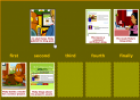
Blogs (Sequence game)
Tiching explorer Organización
- 2734 visitas
In this activity we learn the steps to follow in order to publish in a blog.
-
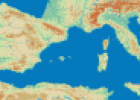
La II Guerra Púnica
INTEF Organización
- 2734 visitas
Actividad interactiva sobre la Segunda Guerra Púnica entre romanos y cartagineses.
-
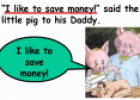
Speech bubbles
Tiching explorer Organización
- 2686 visitas
The resource contains a slide show about the use of speech bubbles.
-
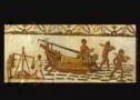
Los períodos de la historia de la Roma antigua
Tiching explorer Organización
- 1 lo usan
- 2454 visitas
...
-
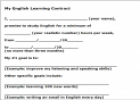
My English Learning Contract
Tiching explorer Organización
- 4 lo usan
- 1883 visitas
We can write our own English learning contract and set our goals. We can re-evaluate it at the end of the term.
-
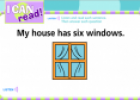
Game: I can read
Tiching explorer Organización
- 2743 visitas
In this activity we listen and read sentences. We identify words in a sentence.
-
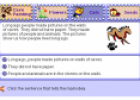
What's the Big Idea?
Tiching explorer Organización
- 2645 visitas
The resource consists of a reading comprehension exercise. We identify the main idea of a short text.
-
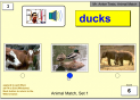
Animal Match (set 1)
Tiching explorer Organización
- 1 lo usan
- 2463 visitas
In this activity we identify names of animals.
-
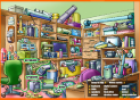
Find the technology
Tiching explorer Organización
- 1 lo usan
- 2473 visitas
In this activity we learn vocabulary related to computers. We identify items in a picture.
-
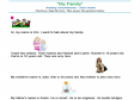
My family
Tiching explorer Organización
- 2713 visitas
Printable worksheet (PDF). Reading comprehension activity. Read a short text about a family and answer the questions. We practice vocabulary (people descriptions) and grammar (present simple, comparatives)
Te estamos redirigiendo a la ficha del libro...













